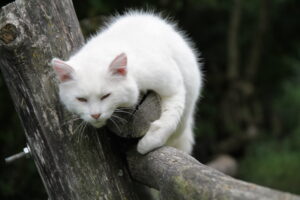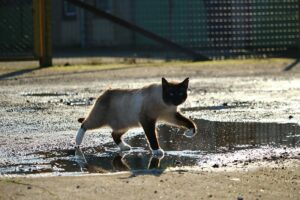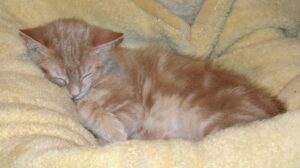What Can I Give My Cat For Diarrhea ?
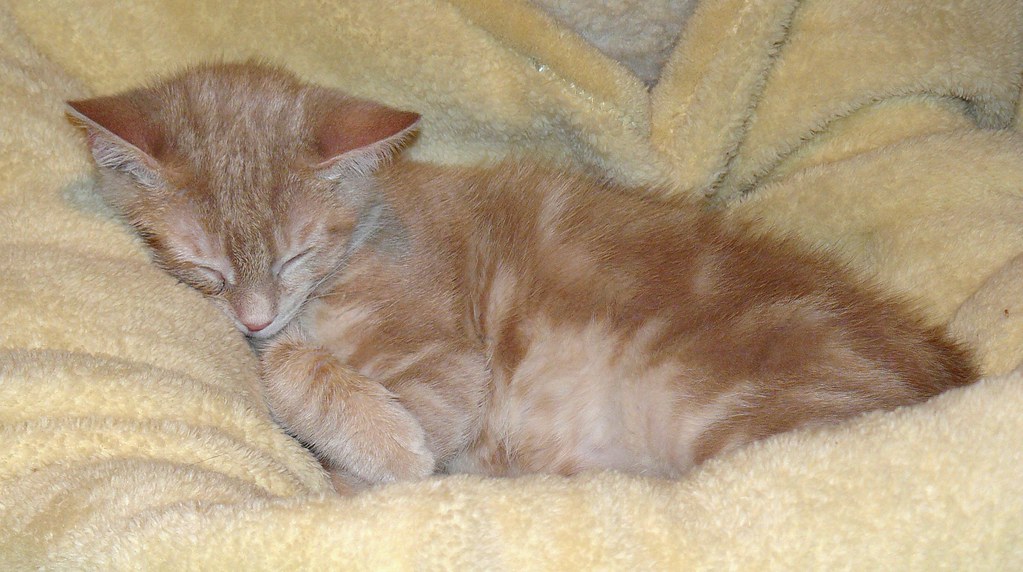
What Can I Give My Cat For Diarrhea :- Just when you think nothing can be worse than waking up and the moment you get out of bed, you step on a cold, slimy hairball… oh wait… the smell hits you.
It’s not a hairball. Your poor kitty has diarrhea and didn’t make it to the litter box, or if they did, they painted the box with it.
Please tell me this wasn’t just my cats!
If you have a cat, you will likely have to deal with diarrhea at one time or another. And in some unfortunate cases, it may be a regular situation. If left unaddressed, it could lead to dehydration and nutrient deficiency.
What Can I Give My Cat For Diarrhea ? What is diarrhea?
Diarrhea is the swift movement of ingested material through the intestine, leading to one or more of the following: heightened frequency of bowel movements, loose stools, or an increased amount of stool.
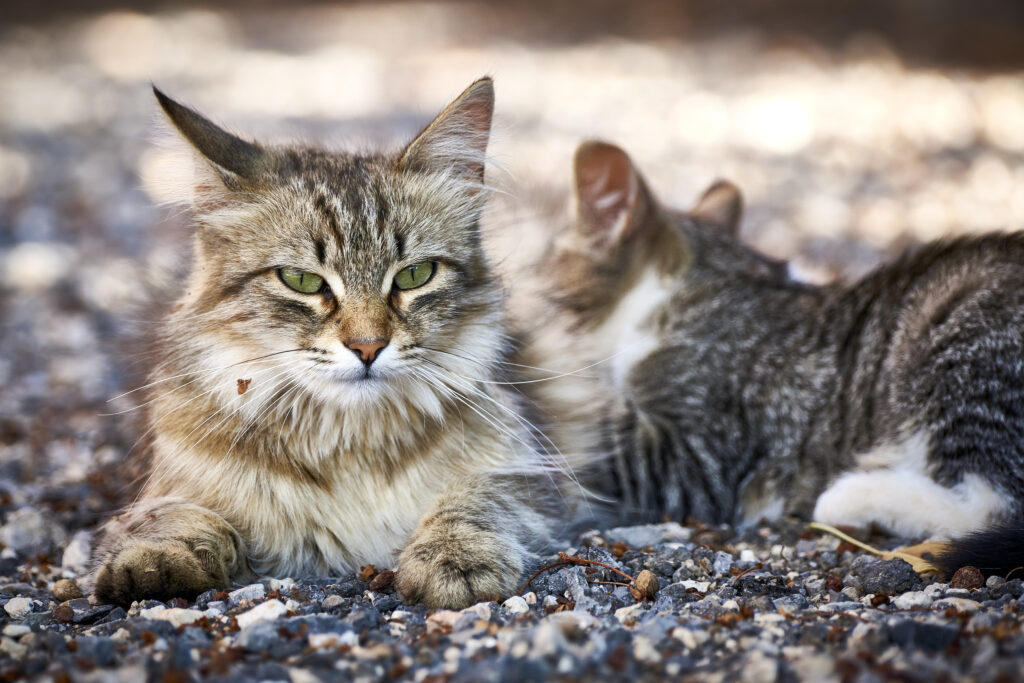
Symptoms of Diarrhea in Cats
In addition to exhibiting unhealthy-looking stools, which are typically loose or watery, cats with diarrhea may manifest the following symptoms:
– Presence of mucus or blood in the stool
– Detection of worms in the stool
– Accidents in the house
– Increased frequency of defecation
– Straining during defecation
– Experiencing nausea or vomiting
– Loss of appetite
– Fatigue or weakness
– Abdominal pain
– Weight loss
Options for Treating Cat Diarrhea
What Can I Give My Cat For Diarrhea :- When treating cat diarrhea at home, you have several options, each suitable for different situations. Here are five treatment options along with guidance on when to use each:
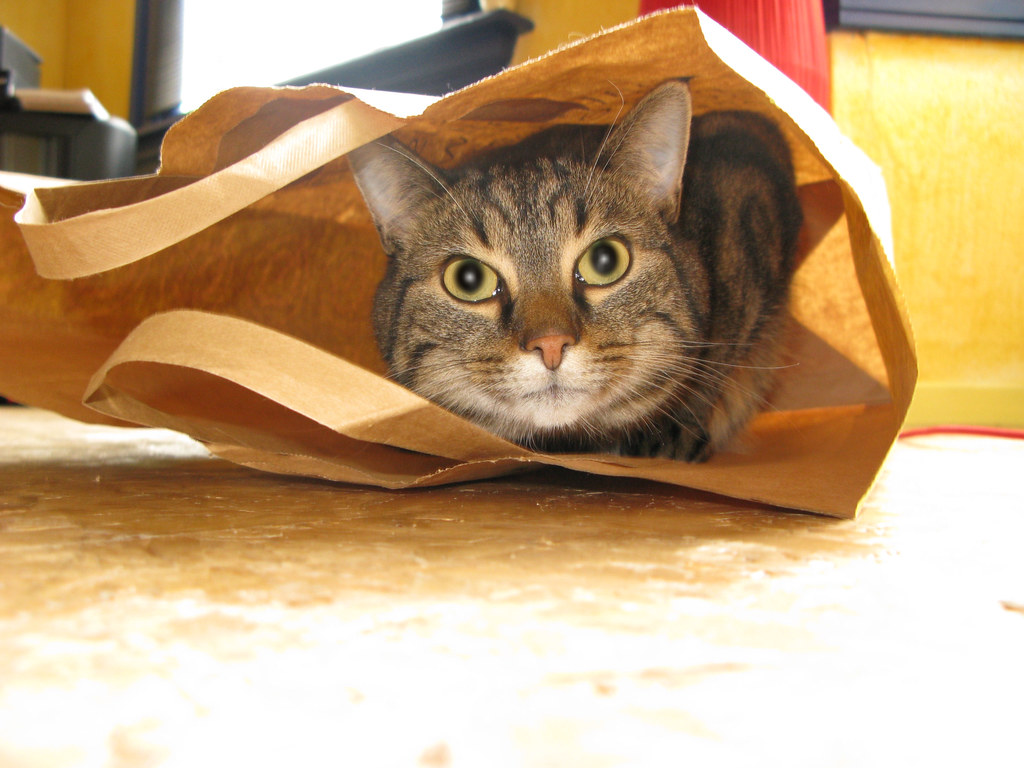
- Change Your Cat’s Food:
- Do not withhold food from cats with diarrhea, as it may hinder the healing process.
- Simplify your cat’s diet by eliminating treats or table scraps and focusing on the core, nutritionally-complete cat food.
- If you recently changed your cat’s diet, revert to the previous food to check for resolution. Consider hypoallergenic or low-antigen diets for cats with food intolerances or allergies.
- Fiber:
- Low-fiber (highly digestible) diets can help with certain types of cat diarrhea.
- Look for foods labeled as highly digestible or suitable for cats with sensitive stomachs.
- For conditions with frequent bowel movements but small stool amounts, consider fiber supplements like unflavored psyllium or canned pumpkin.
- Encourage Water and Electrolyte Intake:
- Prevent dehydration by ensuring your cat has access to fresh water and consider adding diluted chicken or beef broth to encourage drinking.
- Switching from kibble to a canned diet can increase water intake temporarily.
- Probiotics:
- Probiotic supplements can help restore a healthy bacterial population in the cat’s intestinal tract.
- Choose a probiotic labeled for use in cats from a reputable company.
- Anti-Diarrheal Medications:
- Most anti-diarrheal medications should not be used without veterinary supervision.
- Kaolin-pectin medications can be used safely, with typical dosing instructions of around 1 teaspoon per 5 pounds of body weight every four to six hours.
- Be cautious, as some products may now contain different ingredients, so check labels.
Always consult with a veterinarian before administering any medication or making significant changes to your cat’s diet or treatment plan.
Preventing Infection
What Can I Give My Cat For Diarrhea :- When your feline companion experiences digestive upset, it’s crucial to prioritize hygiene for both your pet and yourself. After tending to your cat, make it a routine to diligently wash your hands. Diarrhea in cats can stem from various causes, including infections, prompting the need for isolation. During this period, ensure a comprehensive cleansing of the cat’s surroundings—utensils, food, litter box, and bedding should undergo thorough cleaning and disinfection.
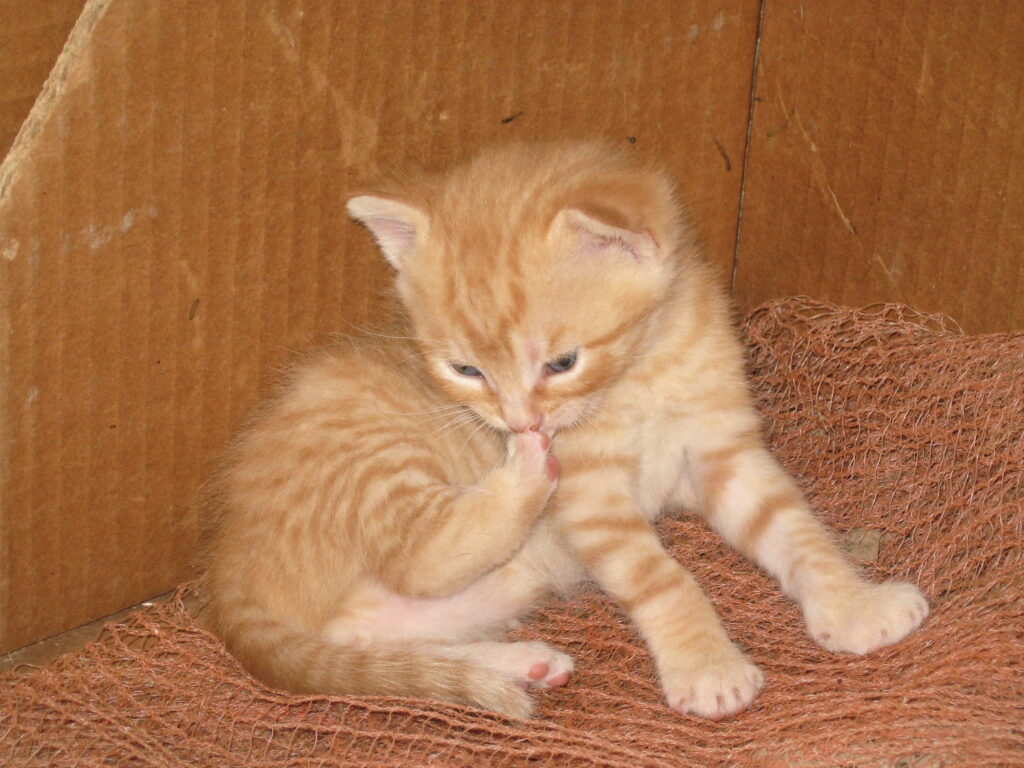
Opt for gloves when handling your cat’s stool to minimize direct contact. To prevent the potential spread of infection, confine your cat indoors temporarily. Fortunately, most cases of cat diarrhea are manageable with proper attention, as long as timely intervention is not overlooked.
What Can I Give My Cat For Diarrhea ? Why Cats Get Diarrhea
Numerous factors can contribute to feline diarrhea, with common triggers encompassing:
- Ingestion of toxic substances such as plants, food, cleaning agents, or human medications.
- Presence of foreign objects like toy fragments, strings, threads, paper, or rubber bands in the digestive system.
- Overconsumption of table scraps or high-fat foods leading to stomach upset.
- Food allergies prompting a gastrointestinal response.
- Rapid transitions between different types or brands of food.
- Intussusception, a condition where a segment of the intestines folds into itself, causing obstruction.
- Inflammatory bowel disease affecting the gastrointestinal tract.
- Presence of intestinal parasites.
- Development of intestinal cancer.
- Underlying metabolic diseases like kidney disease, pancreatitis, thyroid disease, diabetes, and others.
- Infections, whether viral, fungal, or bacterial in nature.
- Adverse reactions to medications.
Diarrhea manifests when fecal matter passes through the intestines at an accelerated rate, leading to reduced absorption of water, nutrients, and electrolytes. This symptom can arise from various conditions affecting the small intestines, large intestines, or other organs beyond the gastrointestinal tract, such as toxins or foreign body ingestion.

